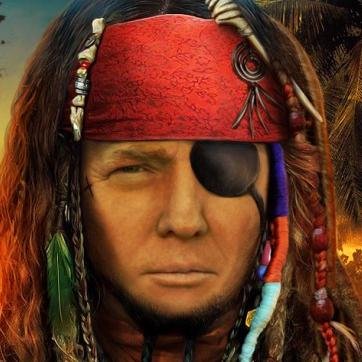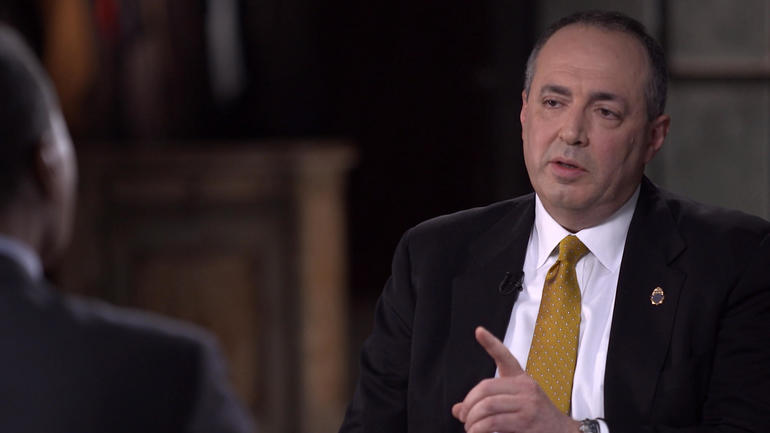
A recent 60 Minutes episode provided further evidence of how the pharmaceutical industry successfully pressured federal regulators to allow excessive prescribing of powerful opioids, paving the way for the ongoing epidemic of fatal overdoses. In recent days there have been reports that Purdue Pharma, the company at the center of the crisis, is planning a bankruptcy filing to reduce the risk from the 1,600 lawsuits that have been brought against the company.
These developments illustrate how the main structures that are supposed to deter corporate misconduct – government regulation and the civil justice system – are not up to the task. Despite the endless complaints from the business world about rules and lawsuits, there are in fact few meaningful limits on corporate behavior.
Despite years of evidence showing that many industries dominate and neutralize the government agencies that are supposed to oversee them, the proponents of deregulation all too often carry the day. The current presidential administration has embraced that ideology whole-heartedly and has even tried to promote the idea that relaxed regulation benefits not only corporations but workers and consumers.
Yet there’s growing evidence that what interests Trump most is using regulatory powers to punish his political enemies and reward his friends. That’s the message of new reporting by Jane Mayer in The New Yorker that Trump personally urged the Justice Department to try to block AT&T’s acquisition of Time Warner, apparently thinking that by sinking the deal he would harm Time Warner’s CNN unit and boost its rival, the exceedingly Trump-friendly Fox News.
There were earlier reports that Trump’s criticism of Amazon’s contract with the U.S. Postal Service was an indirect assault on the Washington Post, owned by Amazon CEO Jeff Bezos.
Aside from being an obvious abuse of presidential power, this approach is no better than a “principled” deregulatory stance. While Trump may occasionally direct his ire against companies that deserve to be punished, the vast majority of miscreants will end up being let off the hook.
Many of the same business apologists who criticize regulation also fulminate against lawsuits. These tort reformers don’t explain how else we are supposed to deal with rogue corporations. Nor do they acknowledge that such companies can greatly limit their exposure with the help of the bankruptcy court.
Purdue Pharma would be far from the first corporation to use Chapter 11 in this way. The filing would not shield the company entirely, but it would greatly reduce its financial liability and make it easier to survive the process.
Moreover, the Wall Street Journal pointed out that “Purdue’s assets may not be enough to resolve the company’s potential liability, in part because most of its profits had been regularly transferred to members of the company’s controlling family, the Sacklers.” In other words, much of the corporation’s ill-gotten gains are already out of the reach of the plaintiffs.
When restraints are weak or non-existent, it is more likely that companies will adopt the business model of the Trump Organization, which appears to be that of breaking every rule and cheating everyone it can. Our challenge is to find new ways to fight back.
 Three days after Donald Trump took office in 2017, the Pharmaceutical Research and Manufacturers of America trade association
Three days after Donald Trump took office in 2017, the Pharmaceutical Research and Manufacturers of America trade association  The SEC’s enforcement action against Theranos Inc. and its founder Elizabeth Holmes puts a new focus on the persistence of corporate crime in the healthcare sector after a period in which the business culprits getting the most attention were banks such as Wells Fargo and automotive companies such as Volkswagen and Takata.
The SEC’s enforcement action against Theranos Inc. and its founder Elizabeth Holmes puts a new focus on the persistence of corporate crime in the healthcare sector after a period in which the business culprits getting the most attention were banks such as Wells Fargo and automotive companies such as Volkswagen and Takata. It appears that the Trump Administration will not rest until every last federal regulatory agency is under the control of a corporate surrogate. The reverse revolving door is swinging wildly as business foxes swarm into the rulemaking henhouses.
It appears that the Trump Administration will not rest until every last federal regulatory agency is under the control of a corporate surrogate. The reverse revolving door is swinging wildly as business foxes swarm into the rulemaking henhouses. The withdrawal of Tom Marino’s nomination as national drug czar is a reminder of the power of whistle-blowing and aggressive investigative reporting, while the fact that he was named in the first place is a reminder of the hollowness of the Trump’s Administration’s commitments to draining the swamp and to seriously addressing the opioid epidemic.
The withdrawal of Tom Marino’s nomination as national drug czar is a reminder of the power of whistle-blowing and aggressive investigative reporting, while the fact that he was named in the first place is a reminder of the hollowness of the Trump’s Administration’s commitments to draining the swamp and to seriously addressing the opioid epidemic. Donald Trump likes to give the impression that he has made great strides in dismantling regulation. While there is no doubt that his administration and Republican allies in Congress are targeting many important safeguards for consumers and workers, the good news is that those protections in many respects are still alive and well.
Donald Trump likes to give the impression that he has made great strides in dismantling regulation. While there is no doubt that his administration and Republican allies in Congress are targeting many important safeguards for consumers and workers, the good news is that those protections in many respects are still alive and well.
 For months the news has been filled with reports of suspicious meetings between Trump associates and Russian officials. Another category of meetings also deserves closer scrutiny: the encounters between Trump himself and top executives of scores of major corporations since Election Day. What do these companies want from the new administration?
For months the news has been filled with reports of suspicious meetings between Trump associates and Russian officials. Another category of meetings also deserves closer scrutiny: the encounters between Trump himself and top executives of scores of major corporations since Election Day. What do these companies want from the new administration? The False Claims Act sounds like the name of a Donald Trump comedy routine, but it is actually a 150-year-old law that is widely used to prosecute companies and individuals that seek to defraud the federal government. It is also the focus of the latest expansion of
The False Claims Act sounds like the name of a Donald Trump comedy routine, but it is actually a 150-year-old law that is widely used to prosecute companies and individuals that seek to defraud the federal government. It is also the focus of the latest expansion of
You must be logged in to post a comment.